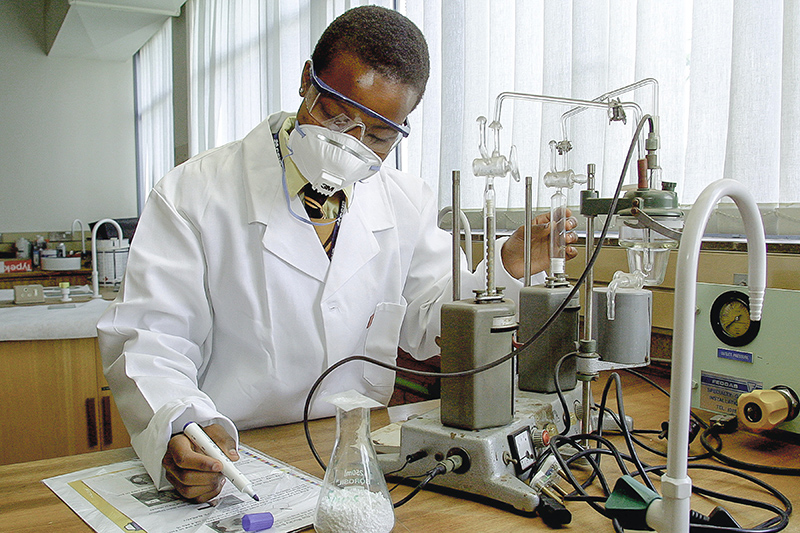Royal Society of Chemistry reports racial inequalities within chemical sciences
The Royal Society of Chemistry finds 'pervasive racial and ethnic inequalities within the chemical sciences community'.

The Royal Society of Chemistry (RSC) has found the extent which racial and ethnic inequalities are pervasive within the chemical sciencies communites.
Their report, Missing Elements: Racial and ethnic inequalities in the chemical sciences, states that exclusion and marginalisation are to a large extent normalised for many black chemists and those from ethnic minority backgrounds.
The RSC found that while 4.9% of undergraduate students identify as Black, only 1.4% of postgraduate chemistry students do, while just 1% of non-professional academic chemistry staff do.
RSC Chief Executive Dr Helen Pain says, 'The data and evidence collected in this report are clear: we are failing to retain and nurture talented Black chemists at every stage of their career path after undergraduate studies, and people from other minoritised ethnicities remain underrepresented at senior levels in chemistry'.
According to the report, the proportion of professors in chemistry departments that identify as Black or Mixed Race is 0%*, while 5.7% identify as Asian - which is respectively 5% and 6.9% in the UK population. (*Any number that is less than 2.5% is rounded down to zero to protect individuals anonymity.)
The RSC also says that only 0.8% of UK professors identify as Black, while 7.5% identify as Asian, and 88.5% as White. Similarly, of Principal Investigators awarded research grants, 12% are from an ethnic minority background and only 1% identify as Black.
Overall, limited access to research funding isdeemed to be a significant structural barrier. The RSC also says that the evidence suggests chemists and other scientists also face barriers in industry, and that organisations, in both academia and industry, are not incentivised to do better.
A joint statement from Trustee Professor Robert Mokaya and Professor Marina Resmini, the Chair of the RSC Inclusion and Diversity Committee says, 'The systemic barriers cannot be addressed by a single organisation and we hope that the data and evidence presented will drive new initiatives from different parts of society and encourage joint initiatives'.







